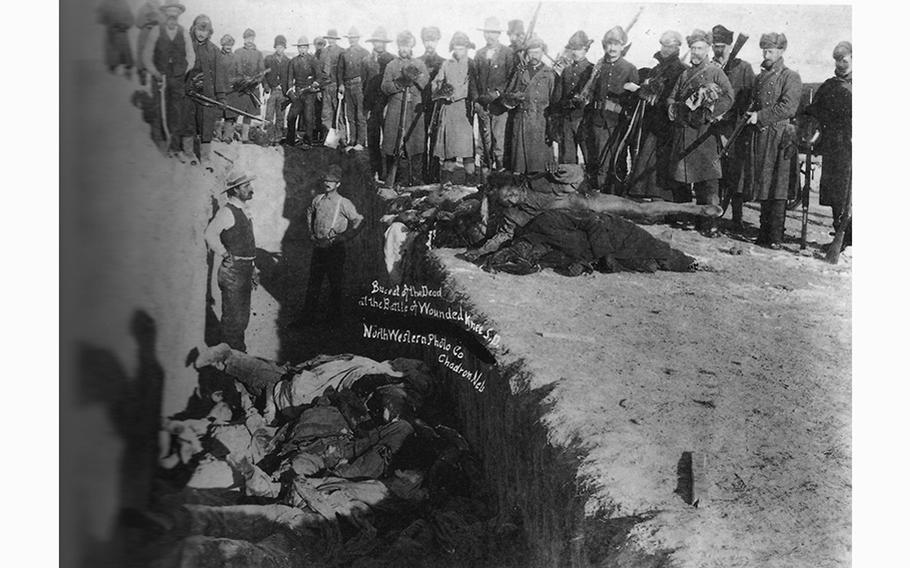
Burying the dead in a common grave at Wounded Knee, S.D. in the aftermath of the Dec. 29, 1890 battle. (Library of Congress)
(Tribune News Service) — South Dakota Representative Dusty Johnson introduced legislation Tuesday that aims to protect around 40 acres of land at the Wounded Knee Massacre site by effectively placing it into a trust.
The Wounded Knee Massacre Memorial and Sacred Site Act provides greater tribal sovereignty to the Oglala and Cheyenne River Sioux Tribes, allowing them to own the land outright and still keep it protected from taxation. The two tribes signed a covenant in October 2022, agreeing to hold the land as a memorial and prohibiting commercial development. OST and CRST purchased the land, which had been previously privately owned, in September 2022.
Johnson said having legislative protection would help keep other governments from interfering in tribal management of those historic lands.
"The tribe owning land is not the same as having land in trust, or in restricted fee status," Johnson explained. "This is stronger protections. It gives the tribes even more of an opportunity to manage this site as sacred ground. It protects it from state or federal taxes, and it protects it against certain infringement."
The land would remain held by both tribes and couldn't be sold without the consent of Congress and both tribes. Cheyenne River Sioux Tribe Chairman Ryman LeBeau said they'll continue to work to strengthen the Lakota Nation, and extended thanks to Johnson and his staff for working with them on the legislation.
"We must remember the sacrifices our ancestors have suffered for us. What happened at Wounded Knee is a reminder that we as a Oyate [people] have succumbed incredible odds to survive, so we must honor our ancestors by preserving the land for future generations to come," said Oglala Sioux Tribe President Frank Star Comes Out.
Johnson said he is hopeful that his colleagues in Congress will be as excited about this legislation as he is.
"I think they'll understand the gravity of the Wounded Knee Massacre, and I think they'll understand why this is sacred ground that needs to be protected," Johnson said.
On December 29, 1890, the U.S. Army 7th Cavalry surrounded a group of Lakota as they camped near Wounded Knee Creek on the Pine Ridge Reservation. The Cavalry demanded the Lakota surrender their weapons. A struggle ensued, and a shot was fired; it's unclear from which side. The 7th Cavalry opened fire, massacring around 350 Lakota — mostly women and children.
(c)2023 Rapid City Journal, S.D.
Visit Rapid City Journal, S.D.
Distributed by Tribune Content Agency, LLC.